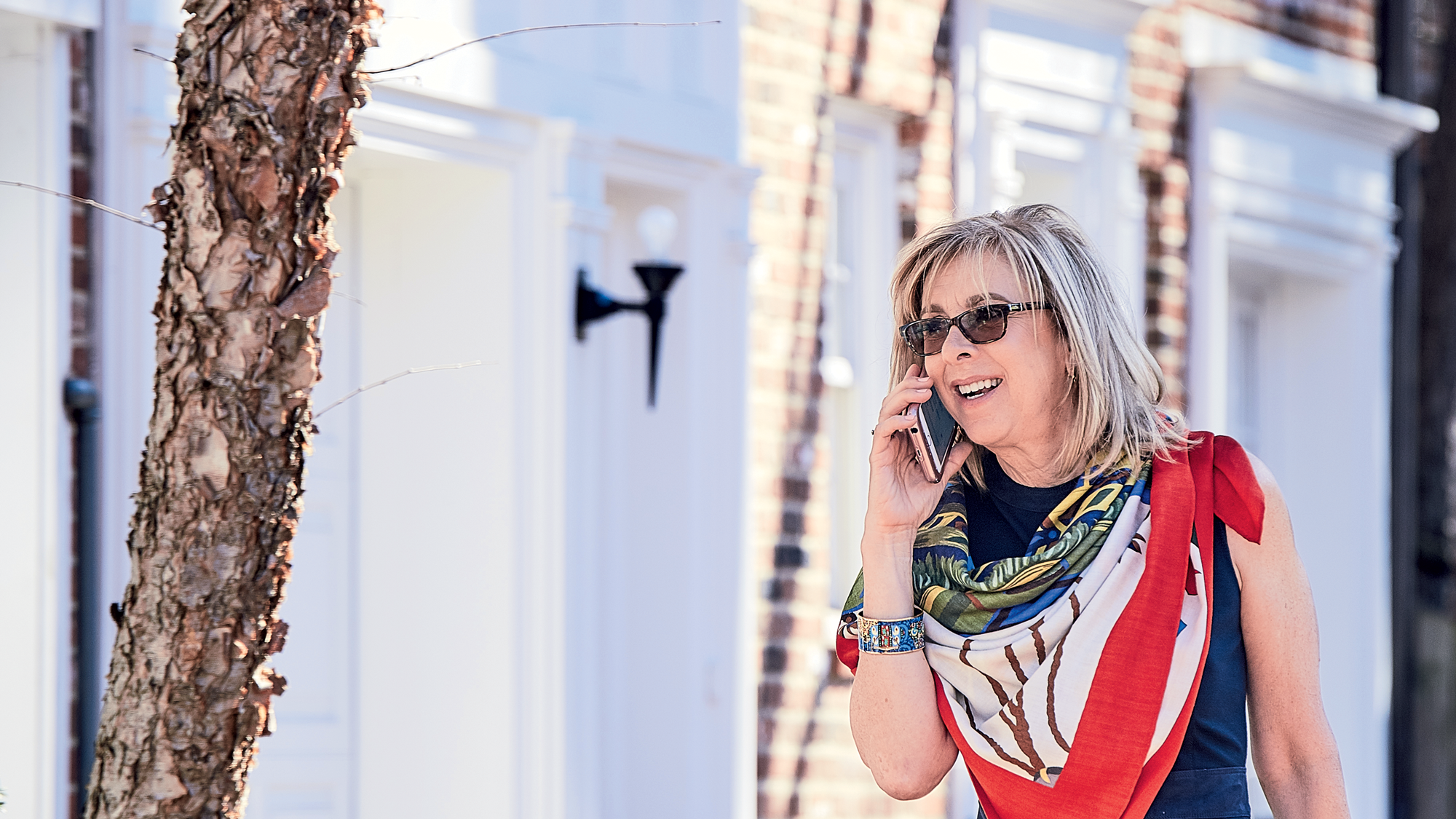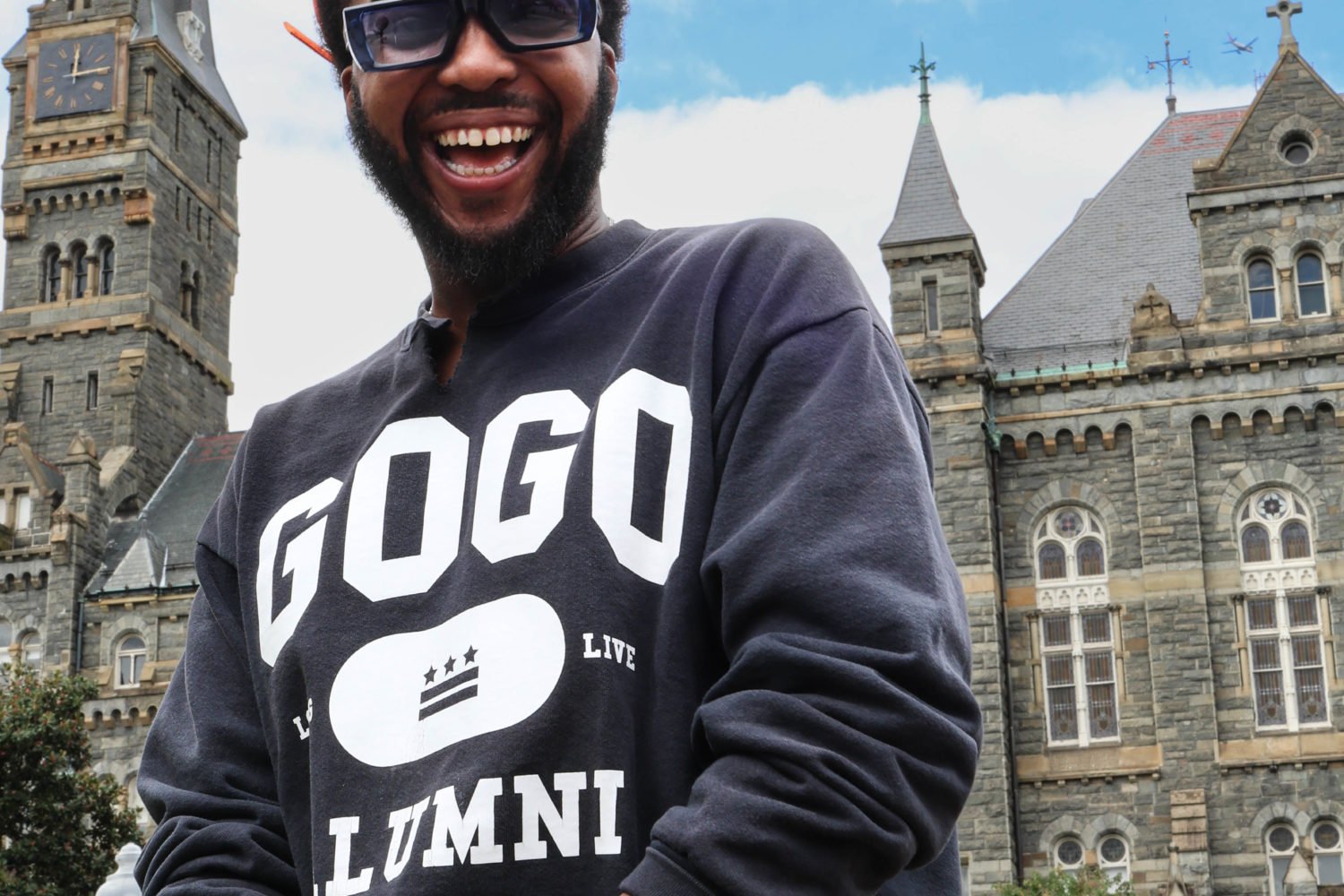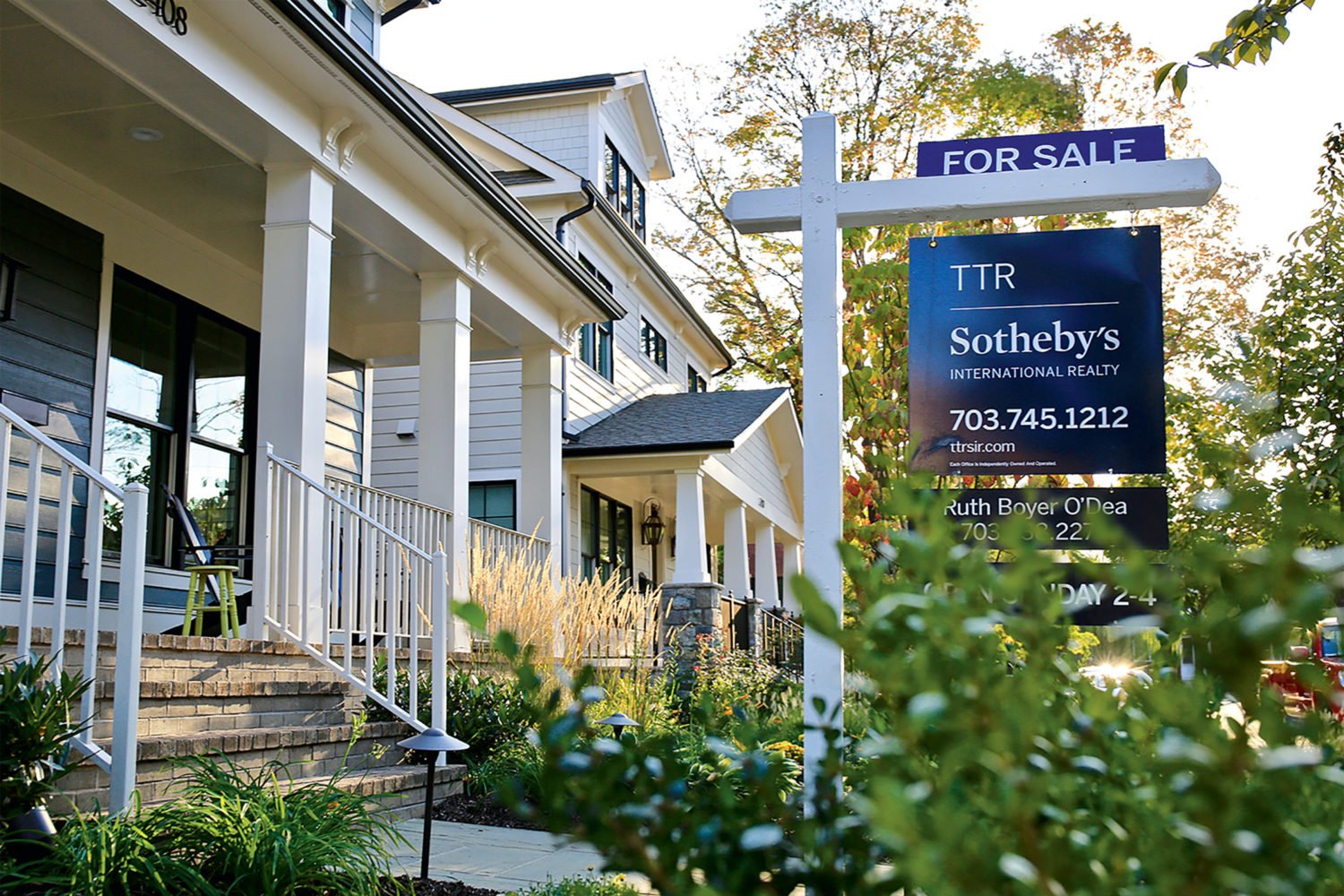The bricked-and-columned behemoth at 3017 N Street, Northwest, is nothing close to turnkey. Known as the Kennedy house for the period when the widowed Jackie lived there, it last belonged to her friend Yolande Fox, Miss America 1951, who bought it in 1975. An 8,196-square-foot mansion trapped in amber, it retains a butler’s pantry, a creaky back stairway up to the maid’s quarters, and, according to the sales brochure, a kitchen “rumored to have the same cabinetry and colors that the first lady installed in 1964.”
Listed last June for $9.95 million, it is an upper fixer-upper. But look past the well-trodden carpeting and scuffed hardwood and there’s a faded glory channeling old Hollywood—walls of celadon silk, murals of midcentury silver-screen stars, a wet bar on the second-floor landing—relics, likely, of Fox’s days as the wife of a Universal Pictures executive. When she died last year, she was remembered as “the last of the Georgetown grandes dames.”
The home is currently in the hands of another grande dame, Washington Fine Properties super-agent Nancy Taylor Bubes. At 62, she rules the high-end markets of Georgetown, Kalorama, and Massachusetts Avenue Heights with a Bluetooth and a Rolodex rivaling that of any of the bigwig lobbyists in town. She’s the top-selling real-estate agent by sales volume in DC. According to the Wall Street Journal/Real Trends, she ranked 34th in the country in 2016, with more than $174 million in sales. Over that year, she sold more than 70 homes, ranging from $365,000 to $9.1 million.
For those who traffic in the tippy-top-dollar properties that might attract a billionaire cabinet secretary, it’s an excellent time to be a real-estate agent.
The Kennedy house, though, has been tough to move. So one day last fall, the price having dropped to $8.995 million and a 3-percent commission of $250,000-plus at stake, Bubes turned on the hustle. At an open house, she sat in the cavernous living room with her aged-to-perfection Louis Vuitton Neverfull.
“Oh my God, oh my God, oh my God,” she says by way of greeting when her iPhone rings. “I was just thinking about you!”
On the other end is Dolly Fox, Yolande’s only child, calling from New York. After issuing a string of four-letter words that would have made Jackie O blush and a mock threat about Fox taking her “effing pink diamond ring” to the grave instead of handing it over to the bill collectors, Bubes determines that Fox is freaking out about how much the upcoming estate sale might net. Fox also reveals she’s coming to Washington soon and doesn’t want to spend the night alone in the house.
“You’re too funny! I love it!” Bubes tells her. “I’ll bring my pillow and we’ll have a slumber party!”
She hangs up when a guy in sweatpants arrives with someone who either is an agent or is pretending to be one to see where Jackie Kennedy slept. Bubes isn’t quite sure herself but takes them around anyway, making sure they see the cupola and letting them ride the elevator. She’s pretty certain they won’t make an offer. “But you never know,” she says. “I’ve learned to never underestimate a man in sweatpants.”
![]()
With a steady increase DC home prices over the past seven years, according to Bright MLS, Washington’s multiple listing service, and the arrival of a new administration, it’s a pretty excellent time to be a real-estate agent in Washington. It’s even more excellent if you traffic in the tippy-top-dollar properties with infinity pools and internet-of-things automation that might attract a newly confirmed billionaire Cabinet secretary or other deep-pocketed transplants.
These are Nancy Taylor Bubes’s people. Which is sort of remarkable, considering that Bubes is the most un-Washington of Washingtonians. Totally unedited, resembling a more Hermès version of Kathie Lee Gifford, Bubes has a la-di-dah air that’s at odds with the popular notion of high-end agents as chilly sophisticates or imperious majordomos—and even more at odds with the serious-minded bigwigs who seem to have her on speed dial. Yet her loopy vibe is a magnet. As Capitol Hill agent Tom Faison, a 25-year industry veteran, puts it: “She’s zany like a fox.”
And as word of one satisfied customer makes its way around the village, one R Street rowhouse bought turns into another Water Street condo sold. “It’s so simple,” Faison says. “She made one deal and did it well. Those people broadcast their good deal because everybody loves to talk about real estate at any dinner party in Georgetown.”
Bubes did a deal at a party once. Her friend Melissa Overmyer met a prospective buyer for the P Street house she owned with her husband, Dale, an architect, at one Georgetown soirée. Bubes was at another. “I start getting one text after another from Melissa, saying she has sold her house and that they are agreeing to all the terms on a cocktail napkin,” when in comes a photo of Melissa and the new buyer with said napkin, which read, “$2.9MM . . . No contingency, cash offer.”
The following day, Dale Overmyer remembers, “Nancy said, ‘You are going to honor your cocktail napkin. A deal’s a deal.’ ”
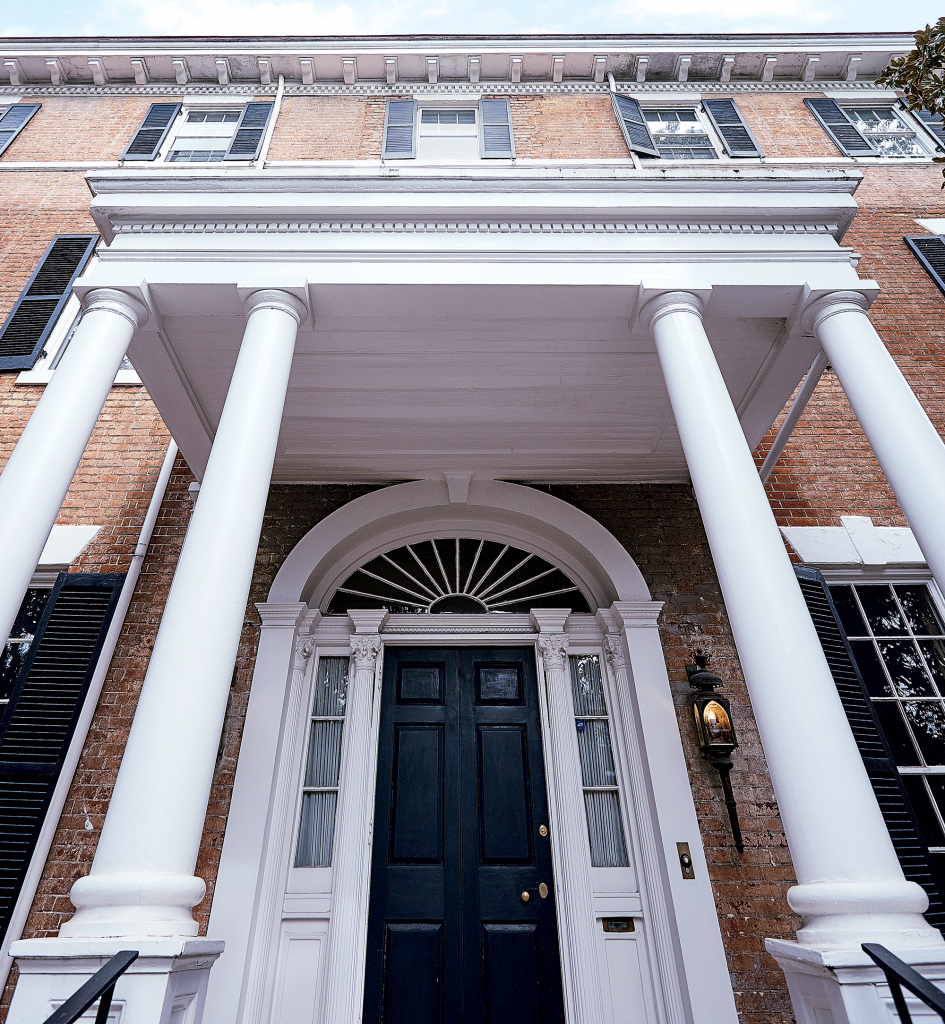
Walk into the George Town Club with Bubes and she’s helloing all over the room. Every July, she and her seven-person staff plant 1,600 American flags in Georgetown front yards, her business card attached. Every Halloween, her corner-lot Victorian turns into a haunted house with animatronic mummies and monsters, a creepy fortuneteller right out of a penny arcade, and ghostly noises emanating from the bushes. The whole neighborhood is there rubbernecking while Bubes, her ginger-blond hair poking out of an oversize witch’s hat, mans a popcorn station or hands out candy bars.
Bubes has occupied the 5,000-square-footer at 31st and Q for 18 years, only the second she’s owned in the neighborhood. (She also has homes in Palm Beach and Rehoboth.) “I’m a Taurus,” she says. “I get very settled.” But she’ll know before you do when you’re ready for a refresh and what might suit.
“She knows everybody in town and every house in town,” says Mary Louise Kelly, a novelist and NPR’s national-security correspondent. “When one comes open, she’ll run into someone she knows and say, ‘Maybe you should think about moving.’ Suddenly in a week, you’re buying a house.”
Kelly and her husband did. They were living in Italy temporarily, not really looking to leave their permanent residence on O Street, but suddenly a gray Victorian on Q with a white lattice portico and that rarest of finds in Georgetown—parking—appeared. They saw the house on a quick trip to DC, had no financing in place, made an offer. “My husband, Nick, was on crutches and couldn’t walk,” says Kelly. “He was literally crawling up and down the stairs on all fours.”
Bubes had no trouble unloading the O Street property they left behind. She knew a couple on R who wanted to downsize.
![]()
Bubes hails from Fredericksburg, Virginia, where her father, Clyde, owned an auto-parts store and her mother, Mabel, played piano in the Baptist church. One day, for my benefit, she calls her cousin Norman from her Champagne-colored 740-series BMW and puts him on speaker. “Hello, doll baby,” he says in the family’s Dukes of Hazzard accent that Bubes has worked hard to lose. “How you doing with those crooks up in Washington?”
Bubes graduated from East Carolina University with a degree in fine art. But “I was not going to be selling pots for a living,” she says. She moved to Washington hoping to work at the Smithsonian, but no positions were open, so she began selling designer clothing at Neiman Marcus. At 29, after a transfer to the in-house PR department, Bubes was fired, she says, for eating a piece of chocolate while working a party. (The help was not supposed to help themselves.)

5 of the Priciest Homes Bubes Has Sold in the Past Year
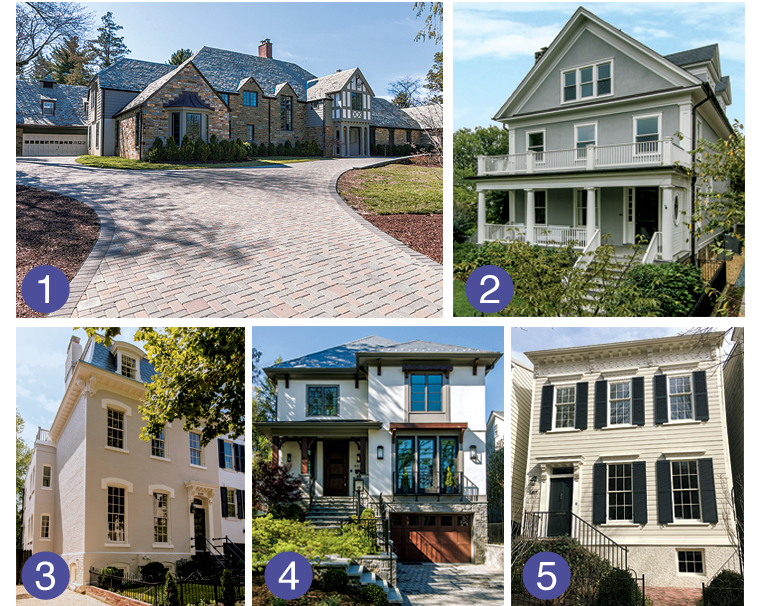
1. $9.1 million, 3134 Ellicott St., NW
2. $4.7 million, 3600 Ordway St., NW
3. $4.4 million, 3310 P St., NW
4. $3.76 million, 4431 Klingle St., NW
5. $3.73 million, 1417 33rd St., NW

Bubes had enjoyed sales and wanted to try it on a larger scale. She got her real-estate license and began working at Dale Denton. While there, she bought a one-bedroom condo in DC’s McLean Gardens for $47,000. She decided to target her neighbors in the complex. Her average sale was $200,000. She went to Century 21, then Pardoe and Coldwell Banker, then Washington Fine Properties. “Some agents get big eyes for big properties,” she says. “I could sell five houses in the time it took them to sell one.”
When Bubes was 35, she married and moved to Georgetown. At first, she didn’t see a way to compete with its established high-end agents. But having kids, as she did by then, provided a way into the clubby society. She started selling the “little stuff,” such as the tiny rowhouses on 27th Street. From there, she got involved in neighborhood groups and met “layer upon layer of people.” By her mid-forties, which coincided with the market boom of the early 2000s, Bubes began to dominate DC. Her sales went from $55 million in 2002 to $100 million just three years later.
“When everyone was selling $1-million-to-$2-million homes, Nancy sold $500,000-to-$600,000 houses and sold lots of them,” says Alan Bubes, her husband of 28 years. “When the market moved to $3 million to $4 million, she was doing $1 million to $2 million. She did a great job of staying just under what everyone else in the market was doing.”
Bubes used to market herself on the front of Safeway grocery carts. Then Trish Yan, her assistant from 2002 to 2009, helped engineer a Don Draper–style rebranding that cast Bubes as the aspirational ideal through an ad that ran in local glossies. Lounging poolside in the ad were two women, one of whom looked like Bubes. “The headline was DISCOVER A WASHINGTON WAY OF LIFE,” says Yan.
Bubes had moved into a new league. “The first time we filed a tax return, my mouth dropped,” Alan says. “She is always out-earning me.” Alan was until recently CEO of Linens of the Week, a major supplier to the food-service industry.
The couple met early in Nancy’s career when she showed Alan’s mother a property on Grace Street in Georgetown. Bubes mère didn’t like the place. But she said to her son, “Show her your apartment and have her sell that!”
After dating four years, Alan and Nancy eloped to Lake Tahoe. Close friend Maury Povich, the TV personality, whom Alan met when he was 16 and caddied for at Woodmont Country Club, was the only witness. Instead of a wedding album, the Bubeses have a video of Povich spoofing his hosting duties on A Current Affair.
The couple is so close to Povich and his wife, Connie Chung, that the latter are godparents to one of the Bubeses’ three children. The foursome take vacations together twice a year—the rare instance, Chung says, when Bubes can survive with no plans or schedule: “We just become idiots and let our brains rest.” Otherwise, “Nancy is relentless in her work.”
She “always has to be busy,” says Alan. “If she’s on the phone, she’s on her stationary bike or needlepointing belt after belt. She did sell a house when she was in labor with our first child.”
Says Nancy: “I didn’t have an assistant back then!”
![]()
Watching Bubes in action is like watching one of those Hindu deities with all the arms. Take the splashy preview party she hosted at the Massachusetts Avenue Heights home of the late financier and venture capitalist Melvyn Estrin. Looking like the offspring of Versailles and the Parthenon, the mansion had two life-size sculptures of horses prancing on the front lawn, neoclassical statues all over the marble foyer, and carpets so pristine that everyone was given surgical slippers before being allowed upstairs, where Estrin’s widow received guests while perched on a settee in the master suite’s sitting room.
Throughout the affair, Bubes stood under a skylight rotunda, somehow managing to balance a plate of hors d’oeuvres, hug and kiss almost everyone who walked in—“Okay, you’re going to die” is her hello—and pass out swag bags. The house’s sale price two weeks later: $12.25 million.
“Nancy is a ‘periodic,’ ” explains Doug Komlenic, her business coach. “She can engage me and you and engage in a multiple of other tasks and be present and in the moment for each one”—a true multitasker. Komlenic, who’s based in San Diego, talks to Bubes twice a month. He discourages other clients from checking e-mail or reading their newsfeeds, but not Nancy. Of 83 clients, she’s one of only two periodics—a human Lamborghini, prone to leaving those who can’t keep up in the dust. “Our challenge from day one has been managing her team,” Komlenic says. “We are looking for someone to be more of a leader so Nancy can delegate and then that person can delegate.”
she used to market herself on safeway grocery carts. then things changed.
Yan, who used to be that person, remembers doing juice cleanses with Bubes and being such intimates that they could finish each other’s sentences. Not that working for Bubes was all sleepovers and hair braiding: “The phone would ring at all hours or Nancy would knock on my door at 7 am and say, ‘Oh, I’m just walking by.’ ” While in Bubes’s employ, Yan rented a house on 33rd Street that Bubes owned. The arrangement contributed to their eventual breakup, after Yan came to believe that Bubes had outright purchased a home for the family nanny. “If I’ve grown someone to $100 million and I’m still renting?” Yan asks reflectively. “That’s a huge disconnect.”
Says Bubes: “I feel badly that she felt this way, because we were very, very close.”
Cara McClure, who’s now a real-estate agent in Palm Beach, enjoyed the not-in-the-job-description duties Bubes assigned her during her 18 months with the firm, such as caddying for Bubes’s son. “I remember thinking, ‘I get to have fun at this golf course and get a good workout at the same time!’ ” Less fun was the night McClure stayed late to help Bubes with her taxes. “But Nancy brought me home-cooked salmon and sat there with me the whole time,” she says. “She’ll be in the trenches with you.”
Bubes takes on everyone as family, according to McClure. In fact, she did buy a place to house the nanny—but it was not a gift. She charged her rent, just as she did Yan. The home was close to Bubes’s son’s school, so the nanny could take over carpooling duties. Bubes was too afraid to chauffeur the boy herself, the result of a highway mishap seven years ago. She was driving back to DC from Fredericksburg and ran out of gas, right in the middle lane of I-395. (A good Samaritan pulled over and walked across three lanes of traffic to rescue her.)
A conflicted relationship with the automobile is yet another reason why Bubes has integrated so well into car-averse Georgetown. Also why she has a very good therapist. “She came to one of my open houses,” Bubes says, cracking up. “We started talking, and she says that she’s a behavioral therapist who specializes in phobias and I said, ‘Oh, my God, do I need you.’ ”
Yes, Bubes sold her shrink a house.
![]()
A real-estate agent who’s leery of driving seems like the ultimate paradox, but within the roughly two-square-mile province where Bubes reigns, it squares perfectly. “I’m not driving 30 minutes to show something in Virginia,” she says. “I’m running five blocks.” Running those blocks at Bubes’s side is like trying to keep up with a mayor. She stops to talk to absolutely everyone, using first names and asking after the whole brood—“It’s all about dogs and kids,” she tells me—or inquiring about an upcoming fundraiser of which she herself is usually a chair, donor, or board member. Bubes belongs to Adas Israel, having converted from Protestantism to Judaism after she married. She also attends 7:30 Mass at Epiphany Catholic Church every morning. She has her bases covered.
“I did that sale,” she says, pointing to the notorious Drath house, where in 2011 47-year-old Albrecht Muth murdered Viola Drath, his 91-year-old wife. There’s a house on P Street that she’s sold four times since 1997.
The one-percenter buyers of today’s Washington want clean lines, contemporary interiors, “bigger closets, bigger bathrooms, and en-suite master bathrooms with a double sink,” Bubes says. Also: “They all want elevators.” She stages her clients’ homes in the full spectrum of neutrals and advises them to paint the walls white. “Twenty years ago,” she says, “you had more people who would . . . replicate the Victorian style—interiors with dark wood, heavy drapery.” Back then, she recalls fondly, “people paid extra for those sloping floors.”
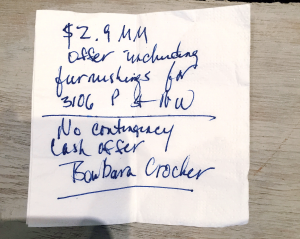
Not that she’s nostalgic. There’s always a deep-pocketed developer (Douglas Jemal) or attorney (“DC Hammer” Mike Slocumb) among her past clients who might call up in search of a change of scenery. Her VIPs are one subject on which Bubes is remarkably tight-lipped. Asked about a rumor that she recently took a Middle Eastern royal house-hunting, she declines to comment. What about whispers of her having hung out at the Trump Hotel on Christmas Eve—and not just because she likes the lobby Ivanka Trump designed? Another no-comment.
Bubes does credit the Trump White House for a recent upsurge in business. “In my 32 years of being in real estate, this is the first time we’ve had an administration come in that’s buying and not renting,” she says.
As of this writing, Bubes has ten listings totaling about $50 million. The Kennedy house is still among them. It’s been reduced again, to $6.5 million. But owner Dolly Fox isn’t worried. Bubes has sold property for her before. “I’ve dealt with a lot of realtors,” Fox says, “and it’s always Nancy who comes in at the last minute and sells.”
Photographs by Marquis Perkins.
This article appears in the April 2017 issue of Washingtonian.

